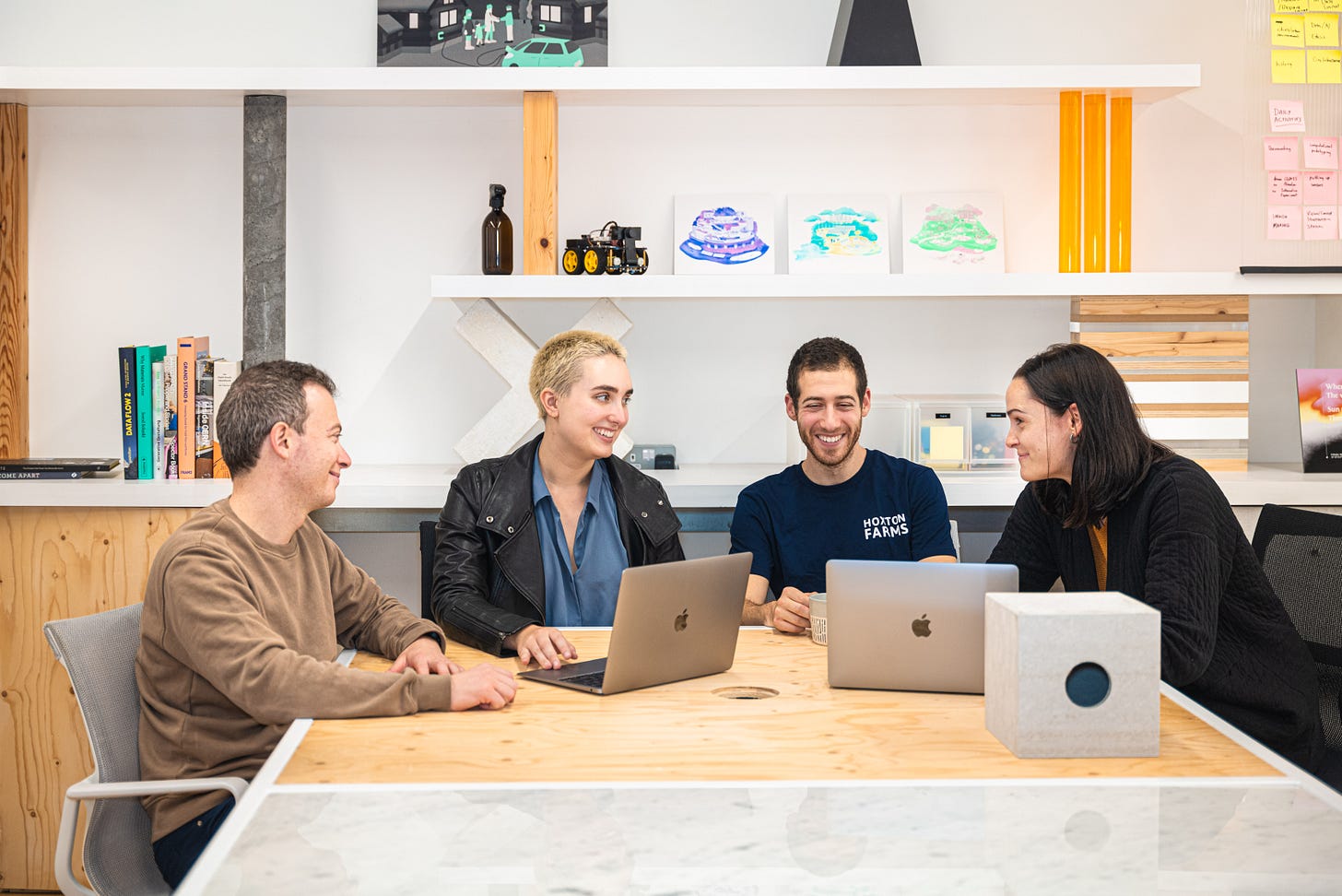Our Investment in Hoxton Farms
Developing cruelty-free authentic-tasting animal fat
When we look at individual behaviors that can make a dent in emissions reduction, meat consumption almost always tops the list. Raising livestock not only contributes to rampant greenhouse gas emissions, including methane that is nearly 80 times more potent in its warming potential than carbon dioxide, but it is also responsible for habitat degradation and deforestation. One way to combat the negative impacts of meat consumption involves changing what we put on our plates. Increased consumer awareness and investments in plant-based meat alternatives leave a lot to be desired as they lack the complexity of animal fats and thus do not cook as well as real meat. Plant-based alternatives therefore miss the mark with texture and taste.
By creating cruelty-free and authentic tasting animal fat, Hoxton Farms is looking to make alternative meat more delicious so consumers opt for healthier products, both for themselves and the planet.
We’re delighted to back the company’s co-founders, Max Jamilly and Ed Steele, as they continue to cultivate the revolution in alternative meat.
What is Hoxton Farms?
Hoxton Farms combines cell biology and mathematical modeling to make a better kind of fat. Healthy fats are important for a balanced diet and are closely connected to how consumers relate to satisfying foods. They are notoriously responsible for making meat juicy, but fats are also a critical sensory component of the meat-eating experience. And while plant-based alternatives do a great job recreating muscle, they lack the sizzling quality that increases texturization. The scientists at Hoxton Farms are cultivating fat cells in their newly built lab in London using stem cells from cows and pigs. They provide the cells with the proper nutrients and conditions needed to grow, and by doing so, are recreating healthy fats without animals. Just a handful of stem cells is enough to multiply in a cultivator, similar to the beer brewing process. But the innovation doesn’t stop there. Hoxton Farm scientists can take cells from different parts of the animal to create different flavor profiles, and they can also customize tastes that have yet to be experienced in the natural world. The future of alternative meat sounds delicious.
Why Did We Invest?

Compelling Founder-Market Fit
We’ve perhaps never met a team of founders who have known each other as long as Max Jamilly and Ed Steele. The pair first met at nursery school in London, and have been friends ever since. Max has a decade’s experience in life sciences, with a PhD from Oxford in synthetic biology and two degrees from Cambridge in biotechnology and business. Before co-founding Hoxton Farms, he worked in biotech VC and consulted for deep tech, consumer healthcare and future food startups in the UK, Europe and the US. Ed is a mathematician with master’s degrees from Oxford and Imperial. He started his career as a machine learning engineer at venture-backed fintech startup Thought Machine. Next, he joined up with an Oxford professor at QED Analytics, a mathematical modeling company solving real-world problems in industries spanning genetics, sport, finance and law.
Direct Climate Impact and Scalability

The United Nations estimates that the meat industry constitutes more than 14% of all human-generated greenhouse gasses, which includes the methane produced by livestock. In addition to clear signs of consumer readiness, we know that consumers can reduce their emissions footprint by 90% simply by opting for plant proteins. Hoxton Farms’ focus on the fat component of alternative meat can improve the existing landscape and allow companies to create meat substitutes that look, cook, and taste just like the real thing. Consumers therefore don’t have to feel like they need to make massive sacrifices to make a difference. The company’s approach also allows for scale through software and automation, which is more cost-effective than using large, traditional bioreactors. Hoxton Farms’ computational process will enable their operation to scale and sell cultivated fat as a B2B ingredient once the company receives regulatory approval. And with companies like Upside Foods’ recent FDA approval for cultivated chicken, the doors are opening for cultivated fat to be approved in the U.S.
We believe the wealth of talent assembled at Hoxton Farms to develop sustainable fat positions the company to bring about transformative change throughout the food industry and we’re excited to help them succeed.
Additional Resources
If you are an accredited investor and want to learn more about being an investor in our fund (to back more great companies like this one!), reach out here, and include desired quarterly commitment level, accredited investor status, and info on your background and how you could be helpful to the portfolio.


